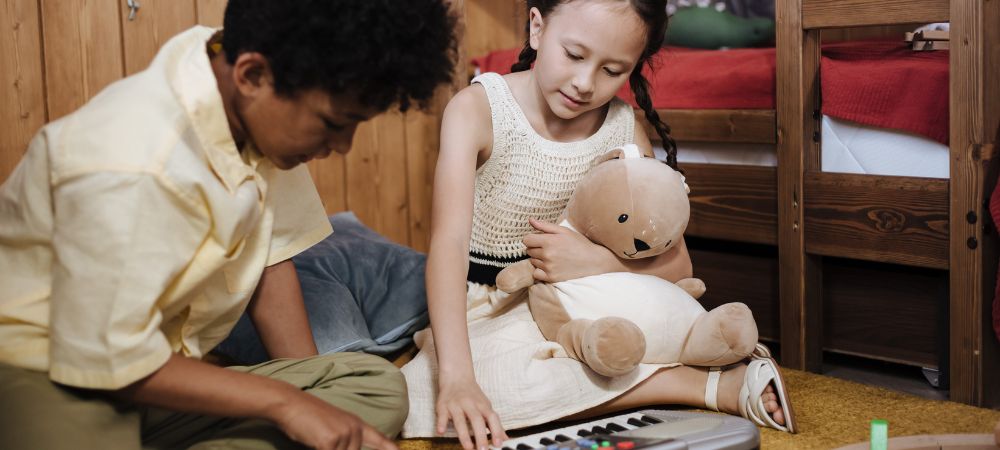

Specialized training for memory care staff members in elder care facilities is so crucial, ya know? It helps them to better understand the needs of those with dementia or other cognitive impairments. Without this training, staff may not be able to properly manage challenging behaviors or provide appropriate care for residents.
Gain access to more information click now. When staff don't have specialized training, it can lead to misunderstandings and frustration for both the residents and the caregivers. This can result in a negative experience for everyone involved. That's why it's essential for all memory care staff members to undergo thorough training before working with residents who have memory-related issues.
By providing specialized training, facilities can ensure that their staff are equipped with the knowledge and skills necessary to effectively care for residents with dementia. This can lead to improved quality of life for residents and a more positive work environment for staff members as well.
Overall, specialized training is absolutely essential when it comes to caring for elderly individuals with memory impairments. It allows staff members to provide the best possible care and support for residents, ultimately enhancing their overall well-being. So let's make sure all memory care staff receive the proper training they need!
Alright, so when it comes to training and qualifications for memory care staff members, there are some specific skills and knowledge that are needed to effectively care for individuals with dementia or memory loss. It ain't just about knowin' the basics - you gotta have a deep understanding of how to communicate with these individuals in a way that respects their dignity and autonomy. This includes bein' able to recognize their unique needs and preferences, and bein' able to adapt your approach accordingly.
In addition, staff members need to have a strong grasp of the various stages of dementia and how they can affect an individual's behavior and cognition. This means bein' able to anticipate potential challenges and respond in a compassionate and patient manner.
Furthermore, staff members should have basic knowledge of common medical conditions that may coexist with dementia, as well as an understanding of medication management and safety protocols.
Overall, the key is havin' empathy, patience, and a willingness to learn. With the right training and qualifications, memory care staff members can make a profound difference in the lives of those they care for.
Social interaction and mental stimulation have a huge impact on elderly individuals' well-being.. They can help prevent loneliness, depression, and cognitive decline.

Posted by on 2024-05-08
Hey there!. So, when it comes to managing medications and health conditions in older adults, one tip that can really help is staying organized.

Posted by on 2024-05-08
Regularly monitoring and followin' up to track progress and adjustin' strategies as needed is crucial in preventin' falls and maintainin' physical mobility in the elderly population.. It's important to stay on top of things and make sure we're makin' progress towards our goals.

Posted by on 2024-05-08
When it comes to training programs for memory care staff members, there are a variety of options available. From online courses to in-person workshops, there is something for everyone to learn and improve their skills. These programs can help staff members better understand the needs of residents with memory impairments and provide them with the tools they need to excel in their roles.
Some examples of training programs include dementia awareness training, communication skills workshops, and behavior management courses. These programs focus on teaching staff members how to interact with residents in a way that is respectful and effective. They also provide strategies for managing challenging behaviors and creating a positive environment for all residents.
One important aspect of these training programs is ongoing education and development. Staff members should continuously update their knowledge and skills to stay current with best practices in memory care. This can help them provide the highest level of care possible for residents.
In conclusion, there are many different types of training programs available for memory care staff members. By participating in these programs, staff members can improve their skills, enhance their understanding of residents' needs, and ultimately provide better care for those living with memory impairments.

Ongoing education and professional development is so important for staff working in memory care! It helps them stay updated on the latest research and techniques for providing quality care to those with dementia. Without ongoing training, they may not be able to properly support residents or respond to their changing needs. Can you imagine how frustrating that would be for both staff and residents? No one wants to feel like they aren't getting the best care possible.
By investing in ongoing education, staff can improve their skills and knowledge, leading to better outcomes for residents. They'll be more confident in their abilities and better equipped to handle challenging situations. Plus, ongoing training can help prevent burnout and turnover among staff members - something that's all too common in the healthcare industry.
So, let's make sure we prioritize ongoing education and professional development for our memory care staff. It's a win-win situation for everyone involved!
When it comes to choosing qualified and well-trained memory care staff members, there are many things to consider. It's not easy finding the right people for this important job. You don't want just anyone taking care of your loved ones with memory issues. There are certain qualifications that you should look for when hiring memory care staff.
First off, make sure they have the proper training and certifications in memory care. You don't want someone who doesn't know how to handle difficult situations or provide appropriate care for those with memory challenges. Look for candidates who have experience working with patients with Alzheimer's or dementia.
Secondly, consider their communication skills. It's crucial that memory care staff members can effectively communicate with both residents and their families. They need to be able to listen attentively and respond compassionately.
Additionally, think about their patience level. Caring for individuals with memory issues can be frustrating at times, so you want staff members who can remain calm and patient in challenging situations.
Lastly, don't forget about their empathy and compassion towards the residents they will be caring for. You want someone who genuinely cares about helping others and making a difference in their lives.
In conclusion, selecting qualified and well-trained memory care staff members is essential for providing the best possible care for your loved ones. Take your time in finding the right candidates who possess the necessary skills and qualities to excel in this role.


Yo, let me tell you 'bout some real success stories when it comes to memory care staff gettin' the right trainin' and qualifications. These ain't just your average run-of-the-mill examples, nah, these are some next level stuff.
One example that sticks out in my mind is when a memory care staff member who had undergone extensive trainin' on how to effectively communicate with residents with dementia. Before this trainin', they were strugglin' to connect with the residents and provide proper care. But after gettin' the right tools and skills, they saw a major improvement in their interactions and the overall well-bein' of the residents.
Another case study I heard about was when a memory care staff member received specialized trainin' on how to create personalized care plans for each resident based on their specific needs and preferences. This not only improved the quality of care provided but also helped to build trust and rapport between the staff member and the residents.
These examples just go to show ya that investin' in trainin' and qualifications for memory care staff can lead to some truly amazin' outcomes. So next time you're thinkin' about cuttin' corners or skippin' out on proper trainin', remember these success stories and think twice. Trust me, it's worth it in the long run!
Providing quality care for individuals with dementia can be a real challenge for unqualified or undertrained staff. Without proper training and qualifications, it can be difficult to understand the specific needs of those with dementia. For example, they may not know how to communicate effectively or how to handle challenging behaviors.
It's easy to see why unqualified staff might struggle in this type of environment. They may feel overwhelmed by the complexity of caring for someone with dementia, leading to frustration and burnout.
Without the right training, these staff members may also lack important skills such as problem-solving and critical thinking. This can make it even harder for them to provide quality care for individuals with dementia.
On top of all that, unqualified staff may not have access to the resources and support they need to do their jobs effectively. Without guidance from more experienced professionals, they may feel lost and unsure of themselves.
Overall, it's clear that unqualified or undertrained staff face significant obstacles when trying to provide quality care for individuals with dementia. It's essential that these staff members receive proper training and qualifications so they can better meet the needs of those in their care.